Identity elements
Reference code
Name and location of repository
Level of description
Title
Date(s)
- 1853-2025 (Creation)
Extent
The Merton Collection has grown to over fifty thousand items, including the literary estate, twenty thousand pieces of correspondence to over 2,100 correspondents, nine hundred drawings, eleven hundred photographs and six hundred hours of audio taped conferences given by Merton to his community at Gethsemani (samples), and several hundred volumes from Merton's own library. It is the largest Merton collection in the world, incorporating items translated into thirty languages, over two hundred and sixty masters and doctoral theses, audiovisual materials, and a growing collection of paintings, drawings, sculptures, and fabric art depicting Merton.
Name of creator
Biographical history
Thomas Merton (1915-1968) was a writer and Trappist monk at Our Lady of Gethsemani Abbey in Kentucky. His writings include such classics as The Seven Storey Mountain, New Seeds of Contemplation, and Zen and the Birds of Appetite. Merton is the author of more than seventy books that include poetry, personal journals, collections of letters, social criticism, and writings on peace, justice, and ecumenism.
Content and structure elements
Scope and content
In 1967, one year before his death, Merton established the Merton Legacy Trust, naming Bellarmine College as the repository of his manuscripts, letters, journals, tapes, drawings, photographs, and memorabilia. Two years later, in October 1969, the College established the Thomas Merton Center, with the Collection as its focal point. The Center serves as a regional, national, and international resource for scholarship and inquiry on Merton and his works and also on the ideas he promoted: contemplative life, spirituality, ecumenism, East-West relations, personal and corporate inner work, peace, and social justice. The Merton Center regularly sponsors courses, lectures, retreats, seminars, Road Scholar [elderhostel], and exhibits for scholars, students, and the general public.

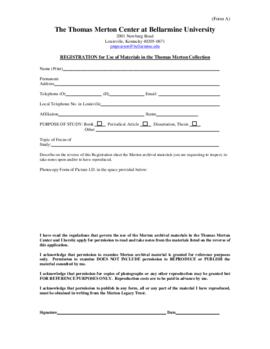
![Drawings for Jay: Greek warriors, sages and athletes. Birds. [For James Laughlin, L03.]](/uploads/r/thomas-merton-center-at-bellarmine-university/d/c/c/dccfcba9cc0b2de3933539a109372d69c230012a9e7bbde330b0e63a09bebfb4/L03_thumb.jpg)
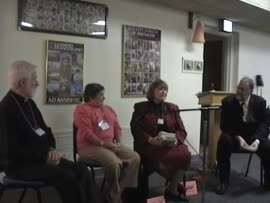
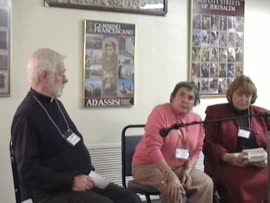
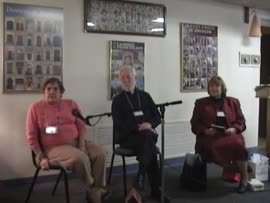
![Drawings for Jay: Greek warriors, sages and athletes. Birds. [For James Laughlin, L02.]](/uploads/r/thomas-merton-center-at-bellarmine-university/4/a/9/4a983ccd3bce21f562d6dbf7852d3c1358197ff37d5d3ada478a317edd5c8f8e/L02_142.jpg)
![Drawings for Jay: Greek warriors, sages and athletes. Cover page. [For James Laughlin, L01.]](/uploads/r/thomas-merton-center-at-bellarmine-university/7/6/8/768d904c5789254a4d77e253a9b33d7d7cb17add0f47949721cbfa8ab9778465/d706fd130ed458f6cded94f7de5b1751f5ffa4b3_142.jpg)
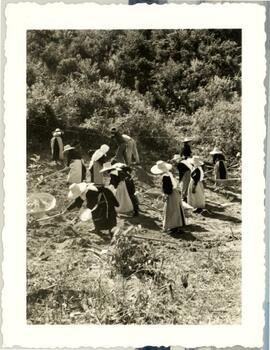
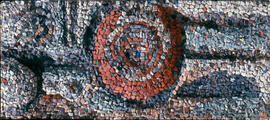
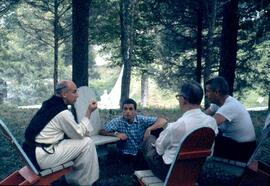
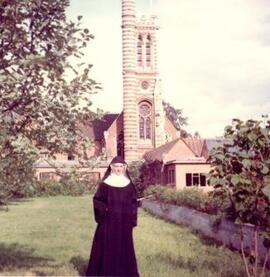
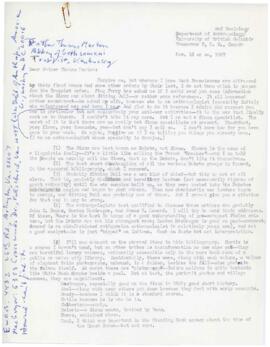
![1968-01-04, TL[c] Aberle from Merton, 'I have been terribly remiss in not answering your fine letter and thanking you for'](/uploads/r/thomas-merton-center-at-bellarmine-university/0/2/2/0223e15da5a0c23b547af06434fb0650d016d4ad891ef47846ae7e2839baf9cc/Aberle_from_Merton_1968-01-04_142.jpg)
![1964-09-16, TL[c] Bernadette from Merton, 'About the passage in the New Man to which you refer: I do not have a copy of'](/uploads/r/thomas-merton-center-at-bellarmine-university/c/f/c/cfc1ec24328ba73d8a9688ff6b4d48b558c3c9ce1e5a840caa4ebdf2b2130029/Bernadette-1964-09-16_142.jpg)
![1968-02-22, TL[c] Bredenberg from Merton, 'Thanks so much for your letter and the magazines. I appreciate your comments on the'](/uploads/r/thomas-merton-center-at-bellarmine-university/8/6/6/8668be2ec6fd8bfad89e84cb2d51b24b070278f77f1d00528959028af3a6d44b/Bredenberg-1968-02-22_142.jpg)
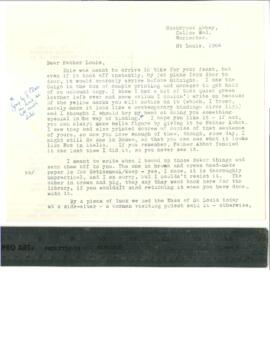
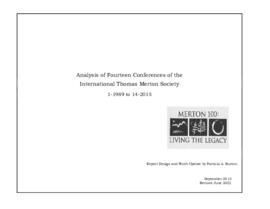
![Thumbnail of Seven Storey Mountain digital exhibit [03]](/uploads/r/thomas-merton-center-at-bellarmine-university/4/5/5/455c11a55d119147e81ccbd41b9149d2146a5ac2a3ba3a0eabbd2f3a70294a95/75ssm3_142.jpg)
![Thumbnail of Seven Storey Mountain digital exhibit [02]](/uploads/r/thomas-merton-center-at-bellarmine-university/8/7/7/877182b52a0e4af8e166950c05d699207424087d652a79315c2f56d67771058f/75SSM2_142.jpg)
![Thumbnail of Seven Storey Mountain digital exhibit [01]](/uploads/r/thomas-merton-center-at-bellarmine-university/f/b/5/fb5f9c32b20386c7cec8192d6372780bb4edeac8bc587288a435790f23122d6e/75ssm1_142.jpg)
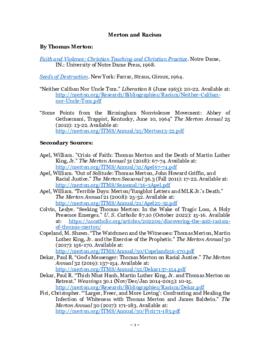
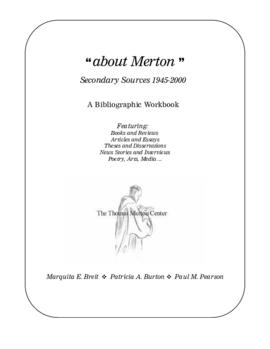
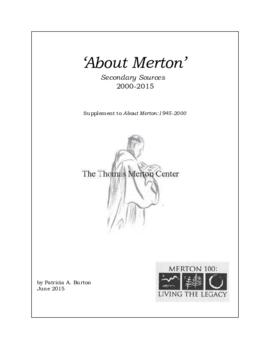
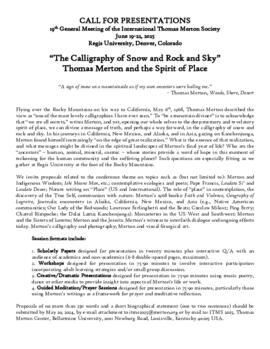
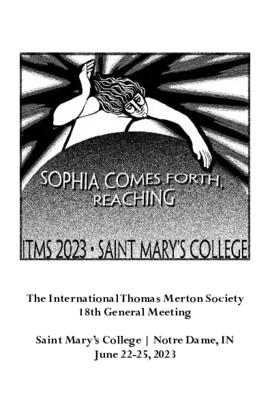
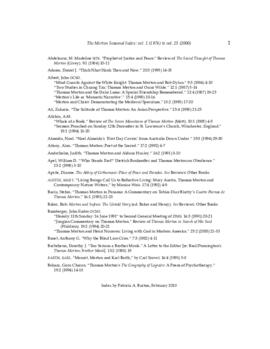
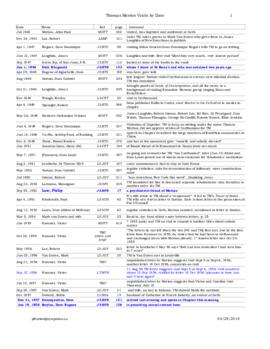
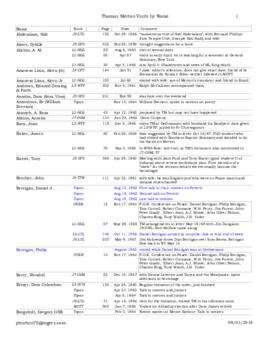
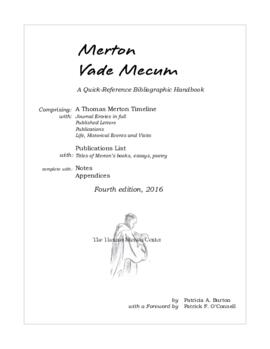
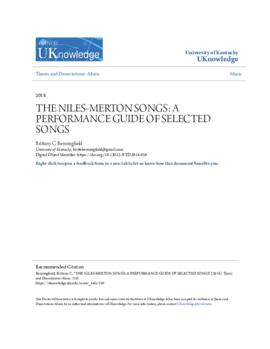
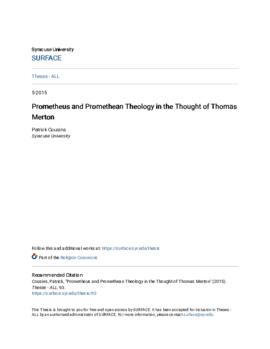
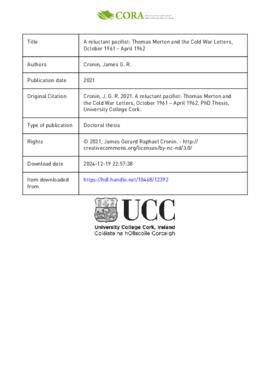
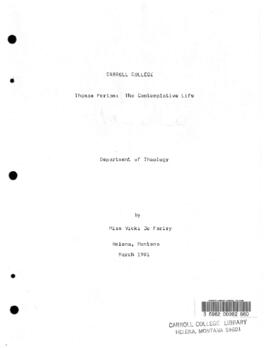
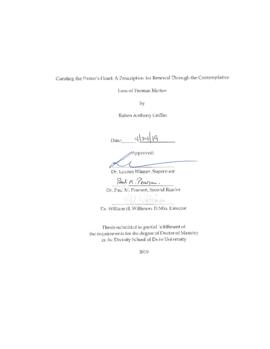
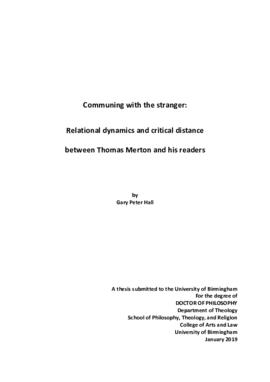
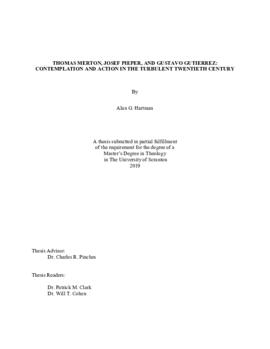
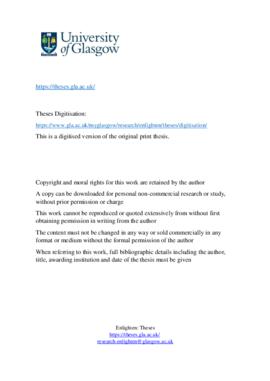
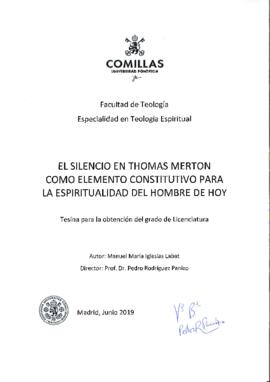
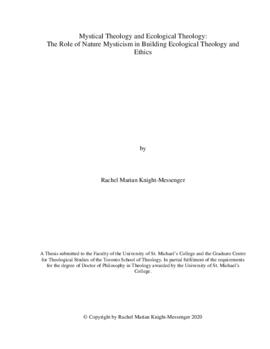
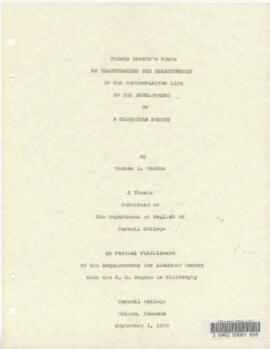
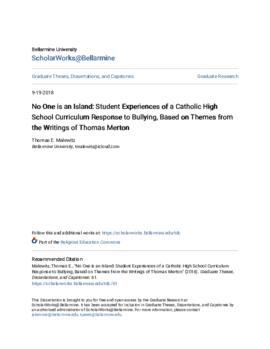
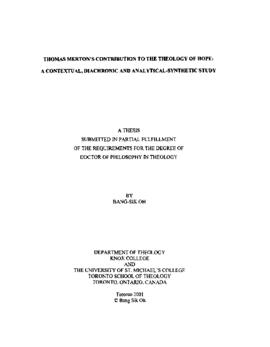
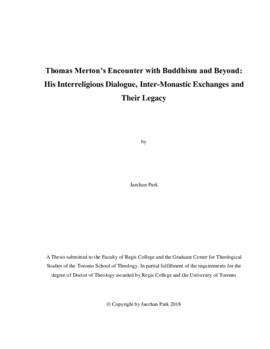
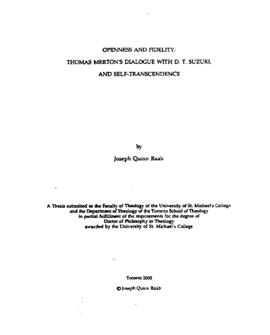
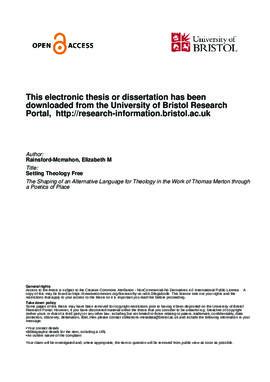
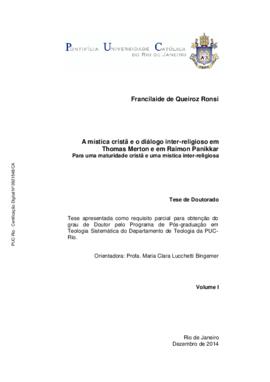
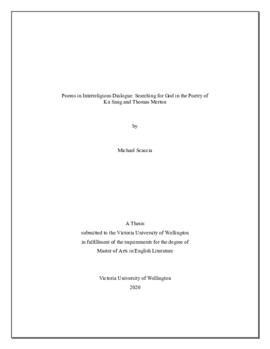
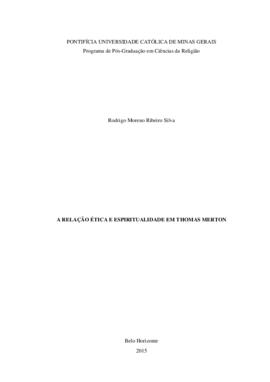
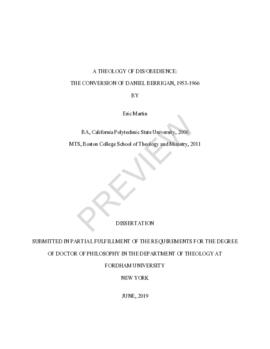
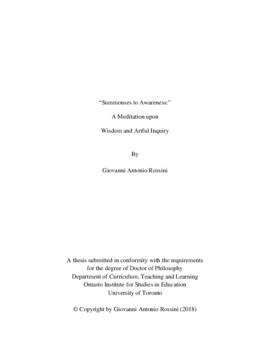
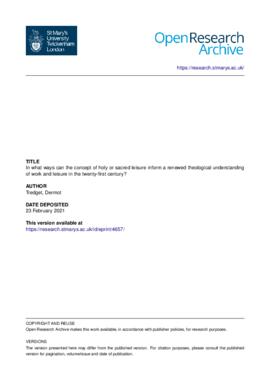
![Manuscript. Awakening of a new consciousness in Zen, The; by Daisetz Teitaro Suzuki. Review. (Review of «Awakening of a new consciousness in Zen, The» by: Suzuki, Daisetz Teitaro, 1870-1966.) (1st Draft). [0053]](/uploads/r/thomas-merton-center-at-bellarmine-university/4/4/d/44d561d96d2bb98e40173de29d9f88f0d28f9ebca92c35afcc1324cdd8e4e104/ac72724f9562dc4cd8e2ab98fd9d1427870732f2_142.jpg)
![Published material. Auschwitz: a family camp. (Review of «Auschwitz» by: Naumann, Bernd.) [2393]](/uploads/r/thomas-merton-center-at-bellarmine-university/1/f/7/1f77fcd40e5e5c39aedabcb57b7918edea7b9c91e664d6c7f447fdd7056c284b/d90170e134e3e1d3940b4df85b7940c92c3359d5_142.jpg)
![Published material. Albert Camus and the Church [English]. [2346]](/uploads/r/thomas-merton-center-at-bellarmine-university/e/7/2/e72a2b7098b7db5535bb7a6fcac06409effa1b86f726c85fce4cc9f706b1c247/AlbertCamusAndTheChurch_142.jpg)
![Review [SEASONAL] of Monks Pond.. in Merton Seasonal 14:4 (Fall 1989): 2...](/uploads/r/thomas-merton-center-at-bellarmine-university/f/7/3/f73e8f83396443136ae2ec9162fb8bc5388f169638480319d1fa1ef050160365/14-4BiddleRevMP_142.jpg)
![Review [SEASONAL] of 30 Days with Thomas Merton – Words of Contempla.. in The Merton Seasonal 42.4 (Winter 20...](/uploads/r/thomas-merton-center-at-bellarmine-university/7/3/2/7321fa9067b54f451f236e26f4476caa2f083ce58a8ceeaa1d2d0e766f81d950/42-4BrennanRevMerton_142.jpg)
![Review [JOURNAL] of Advent and Christmas with Thomas Merton.. in Merton Journal [UK] 9.2 (Advent 200...](/uploads/r/thomas-merton-center-at-bellarmine-university/7/c/1/7c150588070e4ebebe1e151b311f14938736e65ade588f22c95fe965237e038e/9-2PearsonRevMerton_142.jpg)
![Review [SEASONAL] of Advent and Christmas with Thomas Merton.. in Merton Seasonal 27:4 (Winter 2002):...](/uploads/r/thomas-merton-center-at-bellarmine-university/e/6/7/e67465a1cc7d5c12491993992748304ea9f81a45a896c07b423381268000a072/27-4CechonyRevAdvent_142.jpg)
![Review [ANNUAL] of Alaskan Journal of Thomas Merton.. in Merton Annual 1: 343-347....](/uploads/r/thomas-merton-center-at-bellarmine-university/1/5/6/1564f56c9acdd353899abd014ba456f6b7c3554b58f765295c6672d552c01949/CunninghamRevAJTM343-347_rfs_142.jpg)
![Review [SEASONAL] of Alaskan Journal of Thomas Merton.. in Merton Seasonal 13:3 (Summer 1988):...](/uploads/r/thomas-merton-center-at-bellarmine-university/0/3/8/03817240e1b87698ed78930e5ff13d612b505180e62efbe184807a2ebfea0e3c/13-3HartRevDaggy_142.jpg)
![Review [JOURNAL] of A Year With Thomas Merton: Daily Meditations fr.. in Merton Journal [UK] 12.2 (Advent 20...](/uploads/r/thomas-merton-center-at-bellarmine-university/d/b/e/dbe0abd6074b86e777cbe90d8e3395a47a7c44c63377b14d8a1bb6ba47a0ce9d/12-2LyonsRevMerton_142.jpg)
![Review [ANNUAL] of A Year With Thomas Merton: Daily Meditations fr.. in Merton Annual 18: 352-355....](/uploads/r/thomas-merton-center-at-bellarmine-university/5/9/d/59d69123185e7d468d535cdd86e75d70b1ad1fffc12b752019004d468fa7decd/OConnellRevMontaldo352-355_142.jpg)
![Review [SEASONAL] of A Year With Thomas Merton: Daily Meditations fr.. in Merton Seasonal 30:1 (Spring 2005):...](/uploads/r/thomas-merton-center-at-bellarmine-university/9/6/0/960417adb19675d57843647b9bf4deb463135dc7cc0df53280dbbcc55f355602/30-1HulburtRevMontaldo_142.jpg)
![Review [JOURNAL] by (Pannett, Tony) of Signs of Peace.. in Merton Journal [UK] 14.1 (Easter 20...](/uploads/r/thomas-merton-center-at-bellarmine-university/6/7/3/67342ec157b641b5a9a92fb7476a1eb056b798913f9e25244a62e367d3321a0f/14-1PannettRevApel_142.jpg)
![Review [SEASONAL] by (Pramuk, Christopher) of Signs of Peace.. in Merton Seasonal 32:1 (Spring 2007):...](/uploads/r/thomas-merton-center-at-bellarmine-university/d/e/e/dee9ff52d8008f621530e5e7275dc59c6c23dc455cd28dad11cea022c56f5613/32-1PramukRevApel_142.jpg)
![Review [JOURNAL] by (Pearson, Paul M.) of The Abbey of Gethsemani: Place of Peace and Par.. in Merton Journal [UK] 7.1 (Easter 200...](/uploads/r/thomas-merton-center-at-bellarmine-university/6/b/9/6b9890cb0ef1fd5c831407250cfff5ec130e887549456a161fbdfabc71c8a103/7-1PearsonRevAprile_142.jpg)
![Review [SEASONAL] by (Tuoti, Frank X.) of The Abbey of Gethsemani: Place of Peace and Par.. in Merton Seasonal 24:3 (Fall 1999): 3...](/uploads/r/thomas-merton-center-at-bellarmine-university/d/9/9/d9991a88e43080eabae88b2e57a36590467046e495e5b9a8cde1bd3a5122efa3/24-3TuotiRevAprille_142.jpg)
![Review [SEASONAL] by (Fogarty, Thomas) of Making a Heart for God: A Week Inside a Catholi.. in Merton Seasonal 26:2 (Summer 2001):...](/uploads/r/thomas-merton-center-at-bellarmine-university/d/5/c/d5ca66c0698e34227f304cafba5f1f86109ba87768284ecbec07a8e06e93cf2d/26-2FogartyRevAprille_142.jpg)
![Review [ANNUAL] by (Bell, Ian) of In the School of Prophets: The Formation of Tho.. in Merton Annual 29: 252-254....](/uploads/r/thomas-merton-center-at-bellarmine-university/e/9/e/e9e76d09f5ede2046342f949ceb3ae0a5e4f4b1e88af424fcd36866f12aa631d/BellRevArcement252-254_142.jpg)
![Review [SEASONAL] by (Viviano, Pauline A.) of In the School of Prophets: The Formation of Tho.. in The Merton Seasonal 41.1 (Spring 20...](/uploads/r/thomas-merton-center-at-bellarmine-university/6/0/d/60de1e6140db2c578d699f272c6a09d1a553290e0ee9b251939d27f8073a57ad/41-1VivianoRevArcement_142.jpg)
![Review [ANNUAL] by (Martin, Eric) of Engaging Thomas Merton: Spirituality, Justice, ..](/uploads/r/thomas-merton-center-at-bellarmine-university/1/c/0/1c045a2c2a8fc7cb2703650e5ea9ed130bd1ee777b2f6573ff2d119542ba3c0c/MartinRevHoran224-226_142.jpg)
![Review [ANNUAL] by (Weis, Monica) of Remembering the Forgotten Merton.](/uploads/r/thomas-merton-center-at-bellarmine-university/5/d/c/5dc7aaab65d4fef6989770b991f61adb4a815350724bd2fc805aadb854f4ac18/WeisRevMeegan231-236_142.jpg)
![Thomas Merton's Betrayers: The Case Against Abbot James Fox and Author John Howard Griffin [Turley, Hugh; and David Martin].](/uploads/r/thomas-merton-center-at-bellarmine-university/1/b/7/1b7aa23313d34a7c001e4327bde8b60b339a7148cdc831e46a801c852cc930ce/DekarRevTurley236-239_142.jpg)
![Review [ANNUAL] by (Emma McDonald Kennedy.) of A Retreat with Thomas Merton: A Seven-Day Spiritual Journey in Merton Annual 37 (2024): 239-241.](/uploads/r/thomas-merton-center-at-bellarmine-university/7/8/1/7818cb11320fbd53dc8c09e52abecda4a53b3bb330e83a4d650579b0be0d8b02/KennedyRevWaal239-241_142.jpg)
![Review [ANNUAL] by (Andujar, Jose F.) of In Search of the Healing Spirit.. in The Merton Annual 37 (2024): 241-243.](/uploads/r/thomas-merton-center-at-bellarmine-university/e/d/8/ed86ea1a110acb4a9eb0531cbca590107f6e5b4ecbe8a1d588f6038105c61495/AndujarRevCannon241-243_142.jpg)
![Review [ANNUAL] by (Tarr, Kathleen) of The Healing Path: A Memoir and an Invitation.. in The Merton Annual 37 (2024): 243-247.](/uploads/r/thomas-merton-center-at-bellarmine-university/c/3/8/c389a16efc55c9b57903a17c07274552b2ea7965755ec4572cccdf88625750ad/TarrRevFinley243-247_142.jpg)
![Review [ANNUAL] by (O'Connell, Patrick F.) of Modern Mystics: An Introduction.. in The Merton Annual 37 (2024): 248-253.](/uploads/r/thomas-merton-center-at-bellarmine-university/a/b/0/ab0fb7fd07e90b10939ca08a1aa8fbceee15902b76c8571324a60ce2fdd44bfa/OConnellRevMcGinn248-253_142.jpg)
![Review [The Merton Annual] by (Braun, Connie T.) of Our Heart Are Restless: The Art of Spiritual Memoir in The Merton Annual 37 (2024): 254-256.](/uploads/r/thomas-merton-center-at-bellarmine-university/b/2/5/b257f013c0cc586de68801761dd4443f9927c197bed204b85610a40f58081c5b/BraunRevLischer254-256_142.jpg)
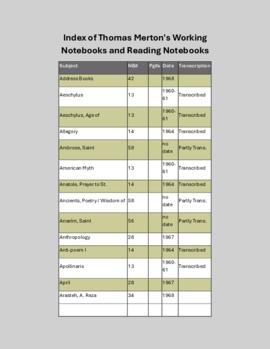
![Review [ANNUAL] by (Pramuk, Christopher) of Thomas Merton, The Monk of Civil Rights.](/uploads/r/thomas-merton-center-at-bellarmine-university/5/3/f/53f9f8917783e37eee10c71b0f8fbf95deaf1a3d3dac1e6f6bd9a2f96ae78736/PramukRevVinski226-231_142.jpg)
![Review [SEASONAL] by (Pearson, Anne) of Thomas Merton, The Monk of Civil Rights.. in The Merton Seasonal 49.1 (Spring 20...](/uploads/r/thomas-merton-center-at-bellarmine-university/b/e/9/be9ec4eb78b09dd3764f40b82424e3ddaae246dabb9e1e9faede72edbc3dfb6e/49-1PearsonRevVinski_142.jpg)
![Review [01] by (Savariyar, Dhinakaran) of Merton & Hinduism: The Yoga of the Heart in The Journal of Social Encounters 8.2 (2024).](/uploads/r/thomas-merton-center-at-bellarmine-university/d/1/d/d1dac27e8c7f82024005c9e1af655f79edec25b14ee9171fbe3c986a530e8afc/Review_of_Merton_and_Hinduism__The_Yoga_of_the_Heart_142.jpg)
![Review [SEASONAL] by (Montaldo, Jonathan) of The Paradise Man: According to Thomas Merton in The Merton Seasonal 50.1 (Spring 2025): 39-40.](/uploads/r/thomas-merton-center-at-bellarmine-university/a/3/c/a3cc19ed88be757199e752fdaeabbb9f51883da3d22ba1cc9f995cd36bdb1f28/50-1MontaldoRevVu_142.jpg)
![Review [SEASONAL] by (Thurston, Bonnie Bowman) of Long Rules: An Essay in Verse in The Merton Seasonal 50.1 (Spring 2025): 41-42.](/uploads/r/thomas-merton-center-at-bellarmine-university/4/4/6/44677a7615d67c6b66bfe03a583f97c35bcd6afd24577e7f2fdad85497ab0ef4/50-1ThurstonRevPerry_142.jpg)
![Review [SEASONAL] by (Whalen, Robert Weldon) of The Merton Annual Vol. 37 in The Merton Seasonal 50.1 (Spring 2025): 36-38.](/uploads/r/thomas-merton-center-at-bellarmine-university/6/7/c/67c4fe1b7de6cd2cedf129cc1c2f1c28a28ef44a2000455406ae5f8f74ab1e1c/50-1WhalenRevMA37_142.jpg)
![Review [SEASONAL] by Paul Dekar of Deep and Wide by Evan Howard in The Merton Seasonal 50.1 (Summer 2025).](/uploads/r/thomas-merton-center-at-bellarmine-university/d/a/3/da373a4a43dd2bb1cd879433b612284326353273f035fa5135543072d69803e6/50-2DekarRevHoward_142.jpg)
![Review [SEASONAL] by Christine Bochen of An Asian Woman's Religious Journey with Thomas Merton by Sophia Park](/uploads/r/thomas-merton-center-at-bellarmine-university/1/c/0/1c0ddc97a53490f3cca8b1f1fe1afef8b079a5c7bd3c5cff405648f97056878e/50-2BochenRevPark_142.jpg)
![Review [SEASONAL] by Monica Weis of Thomas Merton's Tree of Life by Donald St. John](/uploads/r/thomas-merton-center-at-bellarmine-university/4/b/0/4b0b0f6031691d5e41087a1aafd78a9e312bb6b30102a676cf6278cb6d1caf72/50-2WeisRevStJohn_142.jpg)
![Review [SEASONAL] by Jack Collins of An Island to Myself by Michael McGregor](/uploads/r/thomas-merton-center-at-bellarmine-university/d/d/b/ddbb583ac5ba88ac4e9b5ec30a6e6e78351d8c60c9200e9d7b381909a9552029/50-3CollinsRevMcGregor_142.jpg)
![Review [SEASONAL] by (Weis, Monica, S.S.J.) of Pure Act: The Uncommon Life of Robert Lax.. in The Merton Seasonal 41.1 (Spring 20...](/uploads/r/thomas-merton-center-at-bellarmine-university/8/f/4/8f42c6eb74fa3d894b935fe8fb57cf5d54ad9f59f4ae6f5e97900a980868334a/41-1WeisRevMcGregor_142.jpg)
![Review [JOURNAL] by (Dunhill, Stephen) of Pure Act: The Uncommon Life of Robert Lax.. in The Merton Journal 24.1 (Eastertide...](/uploads/r/thomas-merton-center-at-bellarmine-university/7/1/4/7142b59fda42879f7e31522a1cc23dc7942ec9a8c59580332570de4a4a146a0d/24-1DunhillRevMcGregor_142.jpg)
![Review [ANNUAL] by (Hillis, Gregory K.) of Pure Act: The Uncommon Life of Robert Lax.. in Merton Annual 29: 270-273....](/uploads/r/thomas-merton-center-at-bellarmine-university/6/f/0/6f055138836a090187bc3f1ac4c2151f6f6b339d0f9f7a1006eb0800a343ae14/HillisRevMcGregor270-273_142.jpg)
![Review [SEASONAL] by Bernadette McNary-Zak of Vol. 1 of Thomas Merton: Insights and Interviews](/uploads/r/thomas-merton-center-at-bellarmine-university/c/3/0/c3002efd417d9fc3944c62553bb4833e1d709c39883d949048dffcdd0ea45602/50-3McNary-ZakRevMA_142.jpg)
![Review [SEASONAL] by Aaron K. Kerr of Vol. 2 of Thomas Merton: Insights and Interviews](/uploads/r/thomas-merton-center-at-bellarmine-university/d/4/e/d4ead3a2f3601e7f5dc201a027f18445e9bf6e52ccfc1c072fd5a02308ddedcc/50-3KerrRevMA_142.jpg)